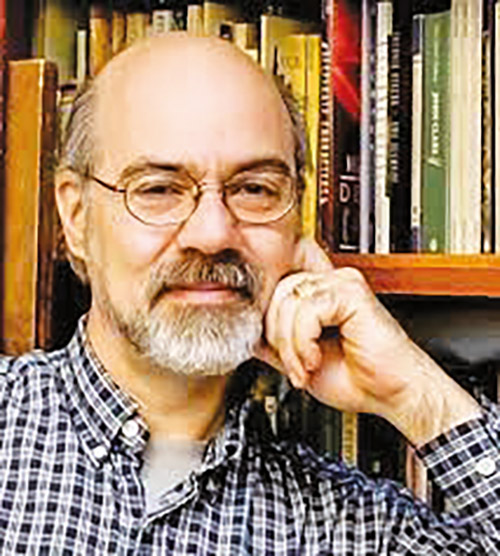

Reviewing: “Shmuel’s Bridge: Following the Tracks to Auschwitz With My Survivor Father” ISBN: 9781623545123, ISBN-10: 1623545129, Publisher: Imagine, Publication Date: March 15, 2022, Pages: 224, Language: English.
This is a Holocaust memoir that is very different from other books of the genre, in that it does not tell a chronological story about what happened to the author’s father. It really explores how different people relate to Holocaust memories, i.e., how the father related to his own memories and how the son and the mother related to his father’s memories. Instead of being organized in a sequential, chronological order, this book is presented as a swirl of memories and flashbacks. The narrative is structured by juxtaposing different scenes and images with others that are thematically similar—all the while jumping back and forth across history. Basically, this book is a sort of postmodern reflection on the memory of memory.
Jason Sommer’s father grew up in a little town next to Munkatch (in Czechoslovakia) and then moved to Munkatch, and later, perhaps as a young adult, spent some time in Budapest. As far as I can reconstruct the history, the family was Orthodox and quite impoverished. The father’s mother had been previously married and there were step-siblings from that marriage, most notably a brother Harry, who survived the Holocaust and features fairly prominently in the book. The father’s mother remarried to an alcoholic no-goodnik type, who, at some point, left her as a single mother raising her children. I’m not quite sure how many children were in the family, because at one point the book mentions many step-siblings in passing.
When the Holocaust reached Hungary, Sommer’s father and his siblings were young adults. The older brother Harry was sent to forced labor. There was also a younger brother named Shmiel/Shmuel who figures prominently in the book. When Shmuel was 17 years old, he was deported to Auschwitz. But on the way, he realized that nothing good was waiting for him at the end of that train ride, so he jumped out of the train’s window while the train was passing over a bridge. Although Shmuel managed to jump into the river and run to the shore, he was shot by the SS guards and died there in the field.
For the author of this book, Shmuel was particularly significant. Apparently, Sommers had some resemblance to Shmuel both physically and in his mannerisms. The bulk of the book reflects on a trip to Poland that Sommers took with his father, embarking on a quest to find the exact bridge where Shmuel had jumped out of the train and been shot.
In this book, the author is trying to give us the experience of different pieces of the past floating around and trying to connect them. I am used to reading a finished product after all the research has been done and the author has done their best to fit the pieces together. But here, Sommers wanted us to share in his experience of memory, as opposed to just telling us the facts.
In fact, a lot of the facts are actually omitted, including exactly what happened with the mother’s previous marriage. Although Sommer’s father clearly survived the war and this is a Holocaust story, the exact circumstances of how he survived are not fully fleshed out, because the author is trying to present us with the experience of memory.
Interestingly, the book makes a dramatic buildup to the fact that Sommer is not really the author’s original surname. The author’s uncle lets slip that Sommer is somebody else’s name, but the book never explains what was going on. Throughout the narrative, it casually uses the name Steinberger as the father’s last name, but never explains how Steinberger turned into Sommer.
The author engages quite frequently in psychoanalysis. There is a lot of description, with painstaking detail, of where he and his father went, and what exactly happened at each juncture, along with what the author was thinking and what he thinks his father was doing and thinking and why the author thinks that the father was acting that way.
There are various themes that comes up as undertones that the book discussed in a muted way but does not expand upon, including how the Holocaust was a horrible experience for anybody in the region, Jewish or non-Jewish, and another theme that was not focused on but does come up is how the author’s father is bothered that his son is not as observant as he would like him to be. And, conversely, the author wondering how his father could still trust in a God that betrayed him.
All in all, these different memories, scenes and thoughts are presented very deliberately; they are artfully juxtaposed to elicit a certain connection between them. This is quite unlike the typical chronological front-to-back prose that readers might be used to. It more closely reflects real life, a person’s real-life experience as a medley of different memories, different flashbacks, a free stream of consciousness. The author of this novel is an accomplished poet, so it’s no wonder that the tapestry of memories is almost poetic in nature.
Shira Yael Klein (nee Deifik) is a freelance editor who lives with her family in the West Bank city of Beitar Illit. She reviews books for the Rachack Review and can be reached via email at [email protected]













